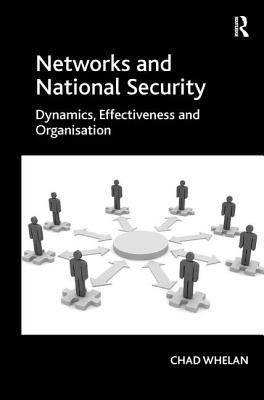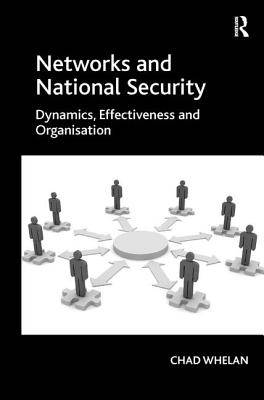
- Retrait gratuit dans votre magasin Club
- 7.000.000 titres dans notre catalogue
- Payer en toute sécurité
- Toujours un magasin près de chez vous
- Retrait gratuit dans votre magasin Club
- 7.000.000 titres dans notre catalogue
- Payer en toute sécurité
- Toujours un magasin près de chez vous
Networks and National Security
Dynamics, Effectiveness and Organisation
Chad Whelan
Livre relié | Anglais
195,95 €
+ 391 points
Format
Description
Networks as sets of autonomous organisations working together to achieve individual and shared goals are becoming increasingly important across many areas of public administration. The importance of networks is well known but most analysts would agree that we do not know enough about the dynamics and effectiveness of networks in relation to their internal operations. This is a significant problem as security, intelligence, law enforcement and many other agencies are increasingly required to organise in and through networks to provide national security. In this comprehensive analysis, Chad Whelan presents a highly innovative, qualitative study of networks in the field of national security. Developing our understanding of 'organisational networks' in organisational theory, management and public administration, and 'security networks' in criminology and international relations, he presents a multi-disciplinary analysis of network forms of organisation. Whelan puts forward a methodological framework involving five levels of analysis - structural, cultural, policy, technological and relational - with which we can better analyse and understand the dynamics and effectiveness of networks. This framework is applied to public sector networks operating in the field of counter-terrorism in Australia in a way that is highly relevant to researchers and practitioners in many contexts where government departments and agencies, and the private sector, need to work together. Networks and National Security: Dynamics, Effectiveness and Organisation not only advances our knowledge of networks and national security but also assists with the essential tasks of evaluating and managing networks. Written in a clear and accessible style and featuring a wealth of first-hand accounts concerning the inside operations of networks, this book deals with the crucial subject of inter-agency coordination in the important field of national security.
Spécifications
Parties prenantes
- Auteur(s) :
- Editeur:
Contenu
- Nombre de pages :
- 182
- Langue:
- Anglais
Caractéristiques
- EAN:
- 9781409431237
- Date de parution :
- 28-01-12
- Format:
- Livre relié
- Format numérique:
- Genaaid
- Dimensions :
- 156 mm x 234 mm
- Poids :
- 471 g







